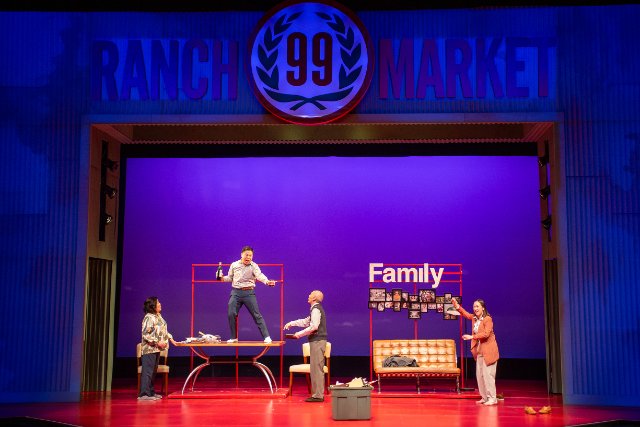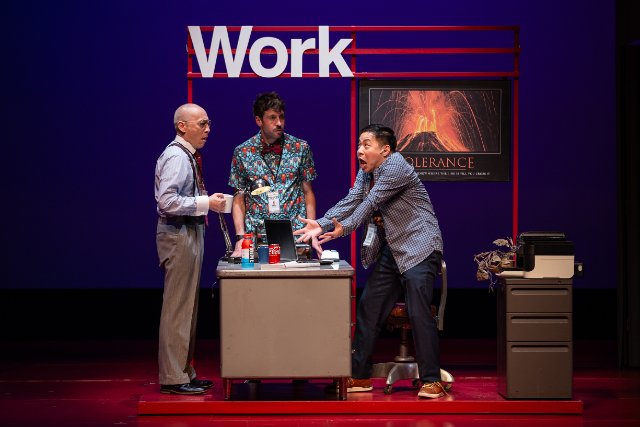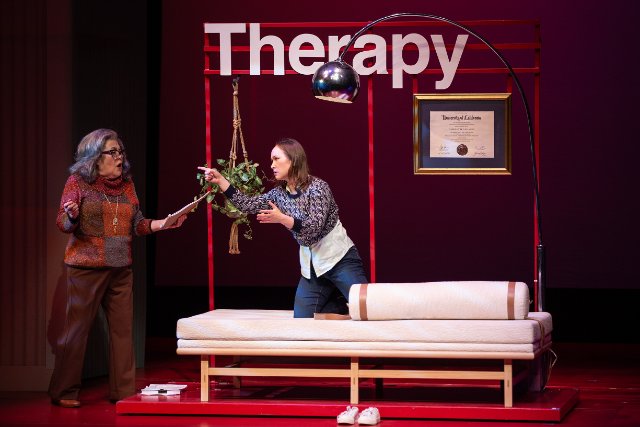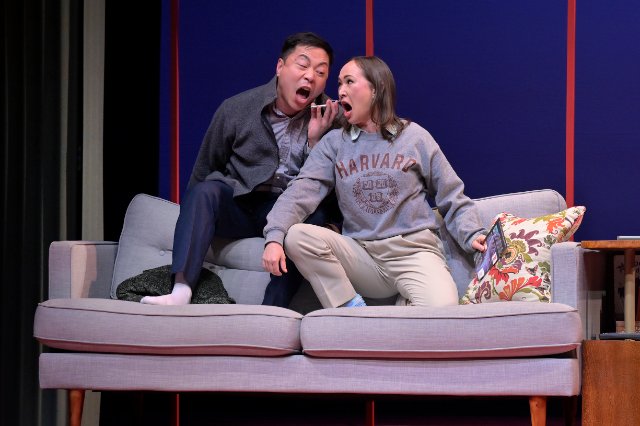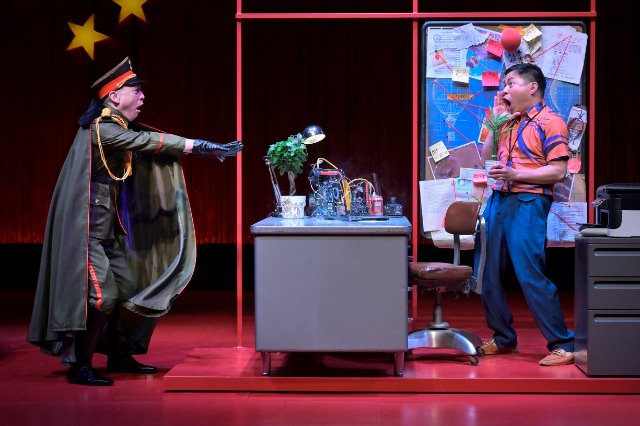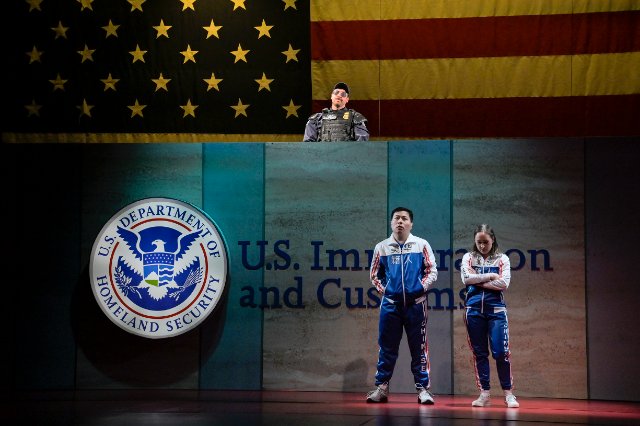Tiger Style!
Walking Challenging Line Between Being Chinese And American
By: Victor Cordell - Apr 16, 2024
Stereotypical Asian parenting has long been recognized in American communities with significant Asian populations, but it became more known and talked about with the 2011 publication of Amy Chua’s “Tiger Mom.” Tiger parenting demands superior performance from children with little tolerance of diversion from goals, whether academic or extracurricular. While parents may be loving, they rarely praise and often belittle their children. A further characteristic is that children should “keep their heads down” to avoid confrontation with authority.
Playwright Mike Lew unveils tiger parenting in a raucously humorous, though sometimes overwrought, manner. But instead of depicting children enduring parental authoritarianism, we see unmarried adult siblings. Already into their careers, they are unable to escape the psychological shackles of their upbringing, long on knowledge but short on life skills.
Jennifer (Jenny Nguyen Nelson) represents the storybook of accomplishment – Harvard MD/PhD and former concert pianist to boot! But what she really wants is to live a life like in an American rom-com. Her brother Albert (Will Dao) writes computer code, but he wishes to be like a band member from the musical “American Idiot.” As a good collaborator, Albert doesn’t take personal credit for the output from his team at work, but when a low-contributing, dim-witted white guy, Russ the Bus (Jeremy Kahn), gets promoted over him, Albert reaches his breaking point. No longer will he keep his head down.
Quitting his job, Albert enlists Jennifer in a momentous quest. As an Asian, Albert feels unable to become all-Western, and so decides to go full-Asian. The two choose to take an “Asia Freedom Tour.” Feeling they would fit in better in China, the land of their heritage, they decide to pack it in and resettle there, never mind that they don’t speak any Chinese dialect. As expected, things get even whackier when they arrive in China. Not surprisingly, the taunts of “You’re not American” that they had heard in the past, turned to “You’re not Chinese.”
“Tiger Style!” covers a lot of ground that might appear well-trodden by more cosmopolitan audiences but not by more provincial. For the theater-going among the former group, there may be a sense of déjà vu, as the backstory of the siblings’ immigrant great-grandfather and the history in the play “The Far Country,” which just closed at Berkeley Rep, are virtually identical. The ancestor comes through the immigration severity of Angel Island; leaves family behind; starts as a dishwasher; moves up to working in a laundry; ends up owning multiple laundries.
The playwright touches on a number of themes. Certainly, stereotyping is one. The good news is that for the greater part, simplified thoughts about Asians center on resentment and envy because many of them have excelled despite facing extra obstacles. In the words of the siblings’ parents in dealing with rejection in the broader white community is “Just suck it up.” The focus on education along with hard work has led to considerable success.
The narrative deals with the challenges of being an Asian-American - probably having ethnic pride; perhaps having loyalties both to the United States and the heritage country; and often suffering by the attribution from other people of having divided or conflicting loyalties. Of course, this is an issue with all hyphenated Americans, but with non-Europeans, facial appearance alone invites discrimination. There is also the factor of the political relationship between the U.S. and the country of the heritage of the hyphenated American. Chinese, or presumed Chinese, will endure a different form of discrimination because of fear-mongering and finger-pointing concerning the origins of Covid, in addition to the political and economic competition between China and the U.S.
All of the characters in the play are caricatures, but most Chinese are treated with some sympathy or possess some redeeming qualities. The three European-American roles are a computer coder who is stupid and offensively familiar; a boyfriend who is self-indulgent and rudderless; and an immigration officer who is rigid and condescending. The playwright could have introduced some nuance for these treatments to avoid being subject to the accusation of reverse racism.
Another interesting issue that is raised concerns immigrant progression toward assimilation. Succeeding generations from immigrants typically have better education; speak better English; ascend the work and socio-economic ladders; and face fewer barriers than previous ones. Those earlier ones often sacrifice for their progeny, but as shown in “Tiger Style!,” conflict of objectives and behaviors often arises between generations.
The play is blessed with a fine cast. In addition to those young stalwarts already mentioned, they are joined by two estimable veterans, Francis Jue and Emily Kuroda, who portray the parents as well as other roles. They particularly get to show their silly sides in this winning farce.
“Tiger Style!” is well produced and well directed by Jeffrey Lo. Arnel Sancianco’s stark staging, utilizing rolling props and labels for the locations represented, offers minimalism yet versatility. But the 99 Ranch Market livery atop the open stage is a bit of a mystery. Though the humor sometimes goes over the top and seems fatuous, the messages resonate and deserve attention.
“Tiger Style!” is written by Mike Lew, produced by TheatreWorks Silicon Valley, and plays at Mountain View Center for the Performing Arts, 500 Castro Street, Mountain View, CA through April 28, 2024.

